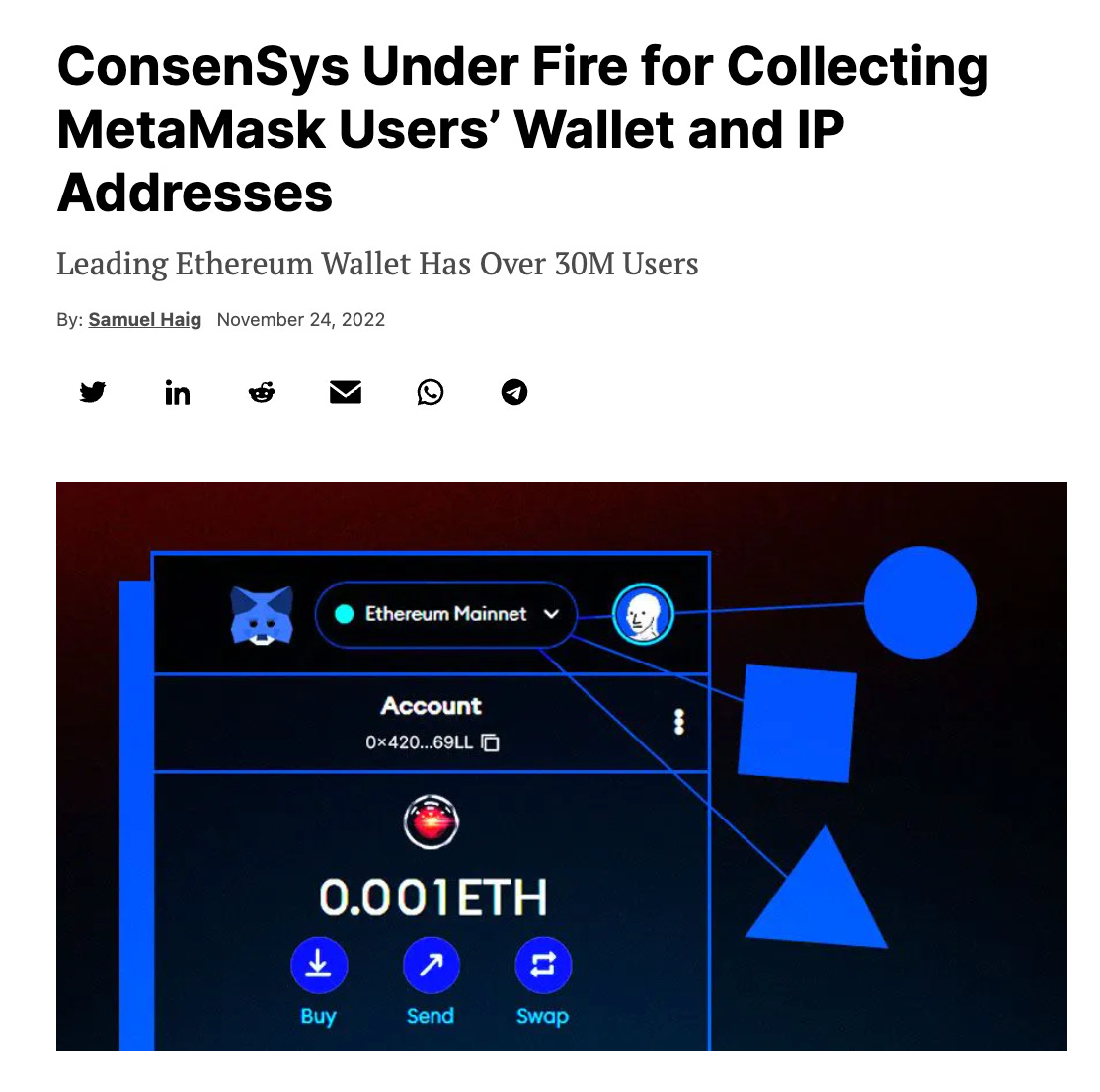[ad_1]
One thing that I’ve observed in conversations over the past year when speaking to projects about analytics is concerns around user privacy and what the perception with their users might be. This is a completely valid concern.
Crypto is founded on principles that go against surveillance capitalism and promote transparency so the thoughts of any sort of tracking cause shivers up everyone’s spines. We pride ourselves as an industry of not knowing who our users are at all and that everyone has a fair and equal chance of participating in a crypto network as long as they have a private/public key pair that allows them to be onboarded with.
However, we’ve reached a point where we’ve kind of plateaued as an industry. Because there’s no real sense of identity and every user is treated the same, malicious and unethical behaviour is rampant. This previous bull market cycle showed this to us through all the fraudulent behaviour.
Because we have no visibility into who users are (in terms of their on-chain identity), we struggle to discern truth in an objective way. If all users are treated equal but the cost of creating a new wallet is zero, then our user metrics collectively are very skewed.
Surely the answer is to start collecting more data so that we can make more informed decisions? Eventually, yes. However there’s two major roadblocks that seem pertinent:
-
Users don’t want to feel like their privacy is being violated and their wallets are doxxed to their real-world identities (I fully relate to this)
-
Projects not wanting to track their user base in fears of violating user privacy (also very understandable)
In the meantime we have a different group of actors that are willing to profit from this war by benefiting from non-data driven decisions aka sybil attackers.
There’s nothing perfect that solves this dilemma although I believe that there are trade-offs that I think strike a fair balance between the two sides. Projects should be encouraged to collect more data although only the amount they need to make more informed decisions and leave personally identifiable information (IP addresses, country data, names, emails etc) out of the picture. However, if we’re unable to make these trade-offs I’m afraid we’ll very much be stuck in the current state of the industry which is rampant ponzi scheme incentives with sybil attackers.
Unfortunately because this such an under-discussed topic, we’re seeing not-so-great practices of this happening. Namely companies collecting clusters of addresses and then linking very personally identifiable information such as IP addresses.
The future is about linking information about a user to a wallet address and each user should be able to craft a new wallet to restart or forge a different kind of identity. We don’t need cookies and IP addresses in the new wave of the internet we’re building. It’s also a far more friendly way of building as it gives the freedom to users to represent themselves how they’d like rather than always being tied back to their real-world identity. I hope that as the industry matures we form more solid standards around user privacy, analytics and ultimately — on-chain identity.
If you’re keen to chat about this more, join the Telegram group here: https://t.me/+T-XpBMSS1ylUz0ej
[ad_2]
Source link


